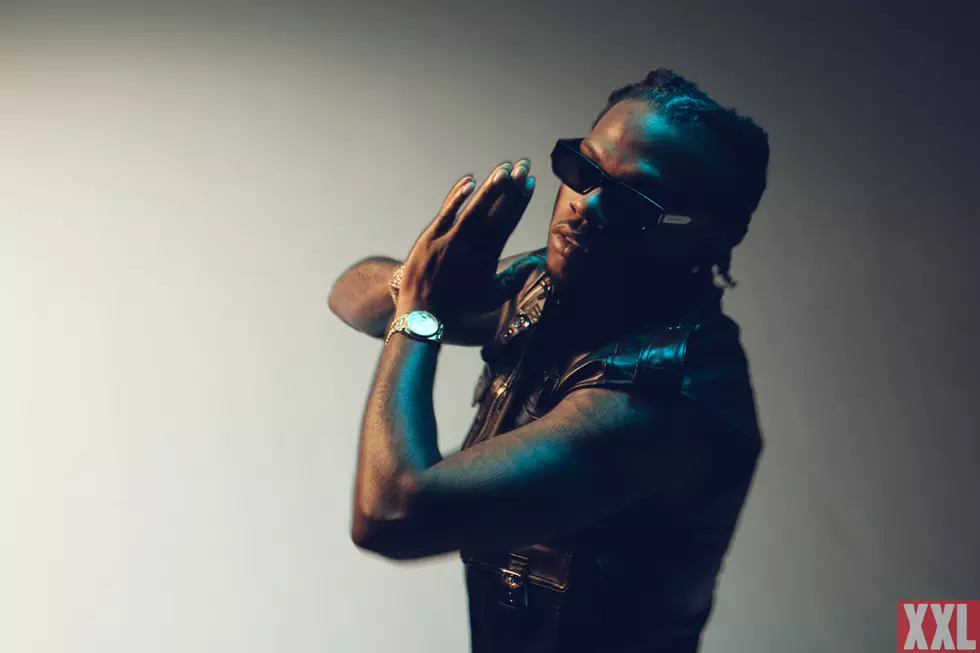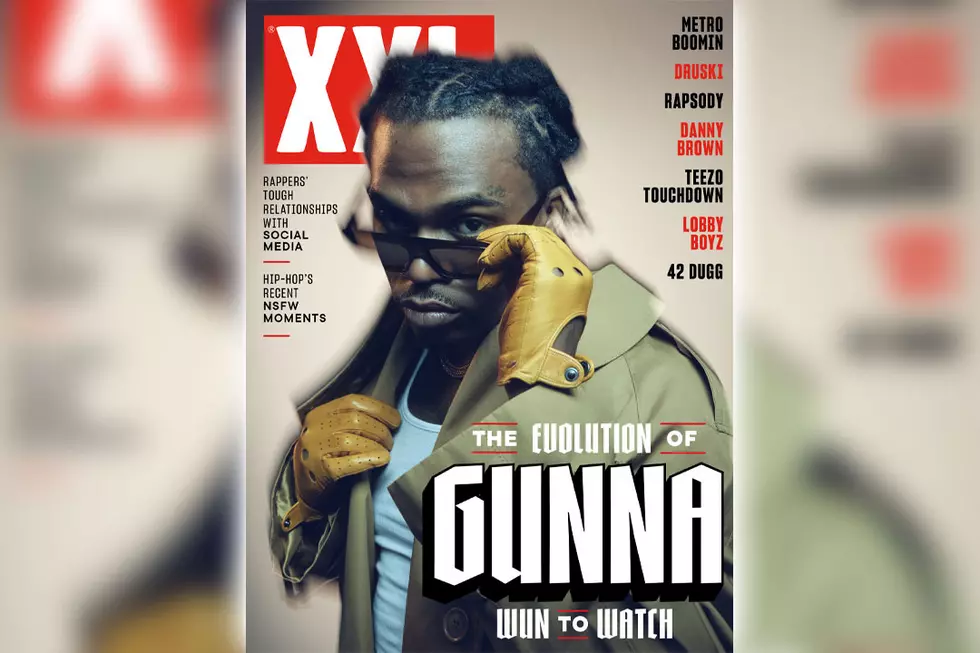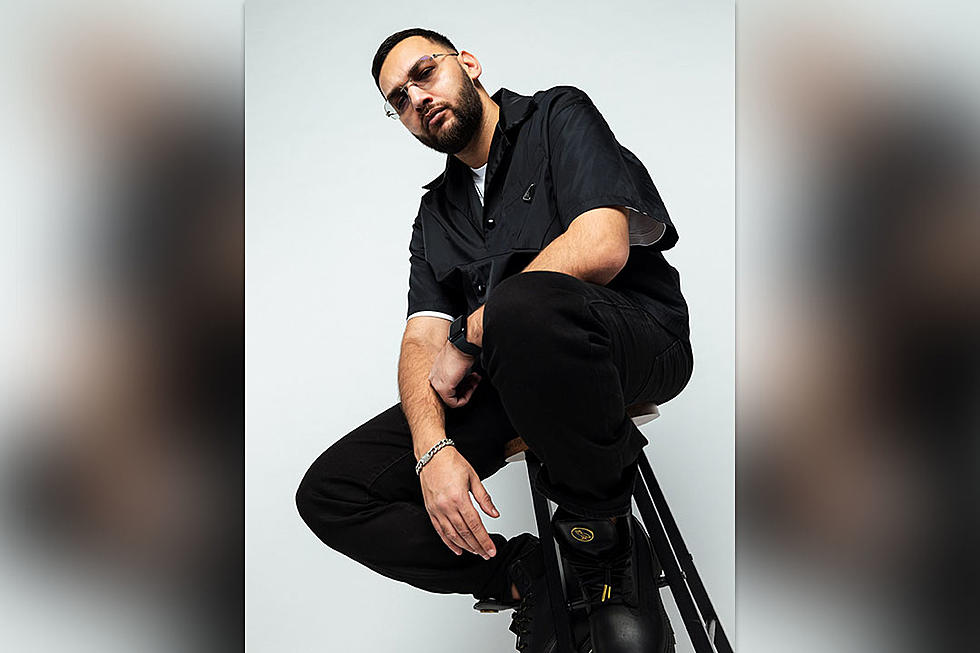
And Then What
 The Media Circus
The Media Circus
March 17, 2005
At 5 p.m., a mass of paparazzi and TV journalists choke the front entrance of the Thurgood Marshall Federal Courthouse at 40 Foley Square in Lower Manhattan. When their mark emerges, there’s a flurry of shouting and flash bulbs as she is sucked into a vortex of cameras, boom microphones and tape recorders. Her handlers fight off the journalists and the hordes of fans—young gay men, mostly, passionate and vocal in their unwavering support. Armed U.S. Marshals clear a path. “If you love Lil’ Kim,” her publicist implores, “Do not speak to the media!”
Moments earlier, in a plain, white-walled courtroom on the building’s fifth floor, a jury of her peers had found the diminutive rap star guilty of three counts of perjury and one of conspiracy. Ten years after coming out on Junior M.A.F.I.A.’s debut album (the retrospectively ill-titled Conspiracy), eight years after her mentor, the Notorious B.I.G., was murdered, and having outshined the rest of her group and achieved icon status in the worlds of fashion and cosmetic surgery, Lil’ Kim faces up to 20 years in federal prison.
Kim showed little emotion as the verdicts were read. Standing straight, head thrown back, her impressive cleavage poking through her frilly blouse, her only movement was the flickering of her Tammy Faye Baker–like eyelashes. Her mother Ruby Jones Mitchell sat nearby with her head in her lap, wailing inconsolably.
The Backstory
February 25, 2001
Kimberly Jones’ life changed on February 25, 2001. It was a sunny day on Hudson Street in the West Village. After appearing on DJ Clue’s Hot 97 radio show, she and her Junior M.A.F.I.A. associates came face-to-face with rapper Kiam “Capone” Holley and a group of his cohorts on the sidewalk outside the station. Enmity stemming from Foxy Brown’s guest verse on Capone-N-Noreaga’s “Bang Bang” (on which Brown disparaged Kim and her crew), bubbled over. Six different guns were fired, 22 bullets. Capone’s friend Efrain Ocasio was hit in the back and seriously injured.
Kim sped off in a limo. But police paid a visit to her home in Englewood, N.J., the next day and soon arrested her associate Suif “C Gutta” Jackson and her former manager and housemate, Damion “D. Roc” Butler. Because the guns used in the assault had crossed state lines, the feds took jurisdiction. More than two years after the incident, Kim and her personal assistant, Monique Dopwell, were granted immunity for their grand jury testimony. Kim testified on June 19, July 3 and August 21, 2003, that she was accompanied to the radio station by Dopwell, Antoine “Banger” Spain and James “Lil’ Cease” Lloyd. Butler, she said, was not present at any time, and she was unable to identify the mug shot of the other accused shooter, Jackson. Dopwell parroted Kim’s story.
On April 14, 2004, as part of The United States v. Damion Butler, Suif Jackson, Kimberly Jones and Monique Dopwell, the two women were indicted for perjury, obstruction of justice and conspiracy to commit same for allegedly lying about Butler’s whereabouts on February 25, 2001, and for claiming they didn’t recognize Jackson’s picture. Unlike her codefendants, Kim retained Mel Sachs, a grandstanding New York attorney whose clientele has included Russell Simmons, David Copperfield, Henny Youngman and Mike Tyson. Sachs, who has a fashion sense reminiscent of The Joker from Batman, was a model for Sean Penn’s portrayal of the sleazy lawyer David Kleinfeld in Carlito’s Way—according to the website melsachs.com.
Along with the publicity firm 5WPR, Sachs immediately went to work on Kim’s image, holding a press conference at New York’s Bryant Park Hotel on August 16, 2004. Kim’s statements to the grand jury, Sachs explained, had been “extracted out of context” and “magnified out of proportion.” No specific questions about the case were answered. “I am innocent,” Kim said, enunciating precisely as she read from a statement. “Throughout my life and throughout my career, I’ve been a survivor. This case is part of the government’s continued indictment against hip-hop and the hip-hop industry.” She also took the opportunity to introduce Royalty, her new watch line with Jacob “The Jeweler” Arabo, and her charity, Lil’ Kim Cares.
But while Kim and Dopwell stuck to their story, the feds knocked down their codefendants like dominoes. Surveillance cameras outside the station had filmed the gunfight and its participants clearly. Suif Jackson pled guilty on June 18, 2004, and was sentenced to 12 years in prison. Butler copped out on January 28, 2005, receiving a 10-year sentence. (Both men were already serving state sentences for a separate 2001 shooting in Brooklyn.) Even Lil’ Kim’s manager, Hillary Weston, who had been charged with passport fraud for helping Butler create false travel documents under the name Sean Connor, plea bargained her case down to a misdemeanor.
Still, two months before the trial was set to begin, Sachs sat in his office across from the Marshall courthouse, trumpeting the party line: “The charges against her have been extracted out of context and magnified out of proportion.”
Opening Statements
March 1, 2005
In their opening statement, the government prosecutors quickly outlined their strategy: They would prove that Lil’ Kim knew Butler was at Hot 97 on February 25, 2001, and that she was lying when she claimed she couldn’t identify Suif Jackson. Assistant United States attorneys Daniel Gitner—his Men’s Wearhouse suits a stark contrast to Sachs’ sartorial flair—and his colleague Cathy Seibel wasted no time. The first three witnesses were law enforcement officers. FBI Special Agent Brian Getson told of a search he conducted at the offices of Kim’s company, Queen Bee Entertainment. He produced a $1,000 check written out to Suif Jackson, and a travel ledger in the name of Butler’s company, Roc Management.
When it was Sachs’ turn, he addressed the court with theatrical oration. He painted his client as a young woman who’d overcome incredible odds and, apparently, a really bad memory to become a successful rap star. He described Kim as Junior M.A.F.I.A.’s breadwinner, a victim of her own kindness who had eventually tired of her old friends’ troubled ways. “Two years before, she had severed her business and personal ties with Mr. Butler,” he said, slicing the air with his hands. “Why would she lie for someone who she had enough of at the time? It doesn’t make sense.” Then he introduced his hook, the refrain from which his defense would hang: “This is a case of window dressing.”
Guns and Gutta
March 2, 2005
The prosecution subpoenaed Suif Jackson, granting him immunity for testimony they hoped would establish a key fact: that his relationship with Lil’ Kim was close enough to prove she was lying when she claimed she could not identify him in photographs. Jackson took the stand wearing a blue prison-issue uniform and responded reluctantly when addressed. Nevertheless, Gitner got straight to work.
“How long have you known Kimberly Jones?”
“Approximately 10 years.”
“Between 1995 and 2002 or so, would you describe your relationship with Kimberly Jones as friendly?”
“Yes.”
“I’m sorry. I didn’t hear you.”
“Yes.”
“Did there come a time in early 2001 when you went to a radio station office in Manhattan?”
“Yes.”
“Was that a day when Kimberly Jones and others were on the radio?”
“Yes.”
“Did you bring a weapon with you?”
“Yes.”
“What kind of weapon?”
“A Mac-11.”
“Was it fully automatic?”
“Yes.”
“Does that mean it was a machine gun?”
“Yes.”
“Where did you bring it from?”
“New Jersey.”
“What city in New Jersey?”
“Englewood.”
“Who lives there?”
“Kimberly Jones.”
More From XXL









